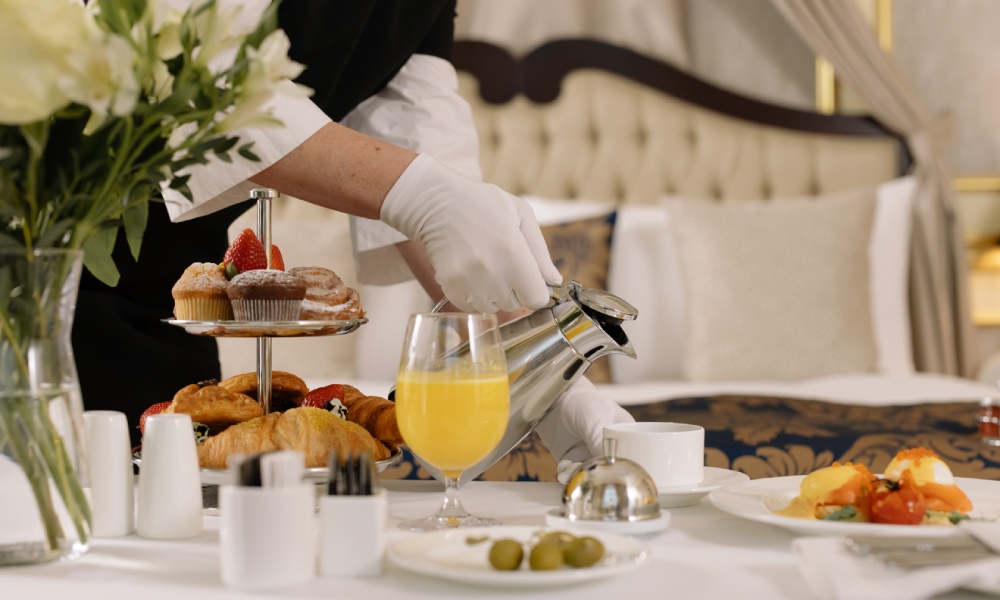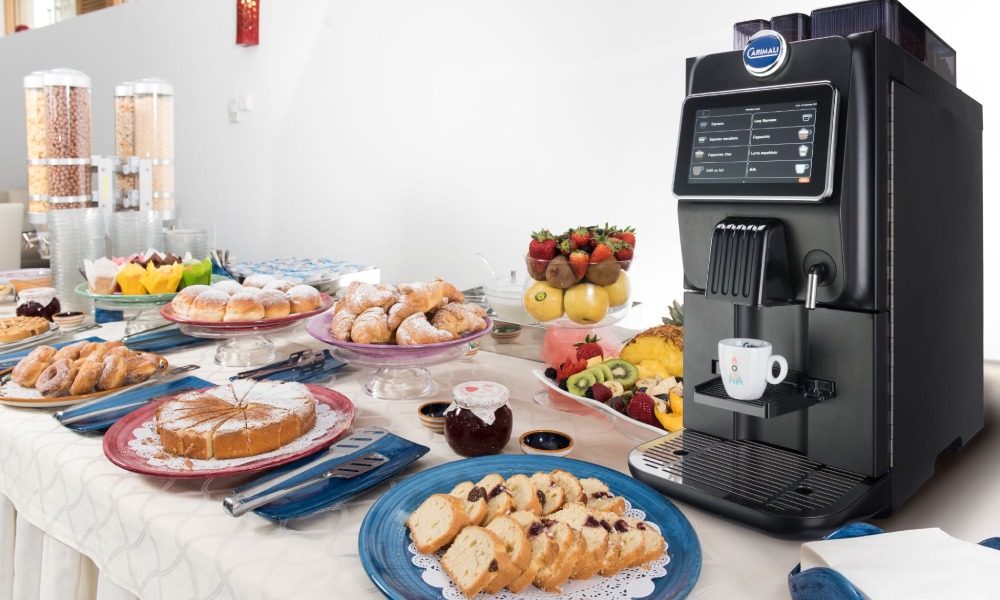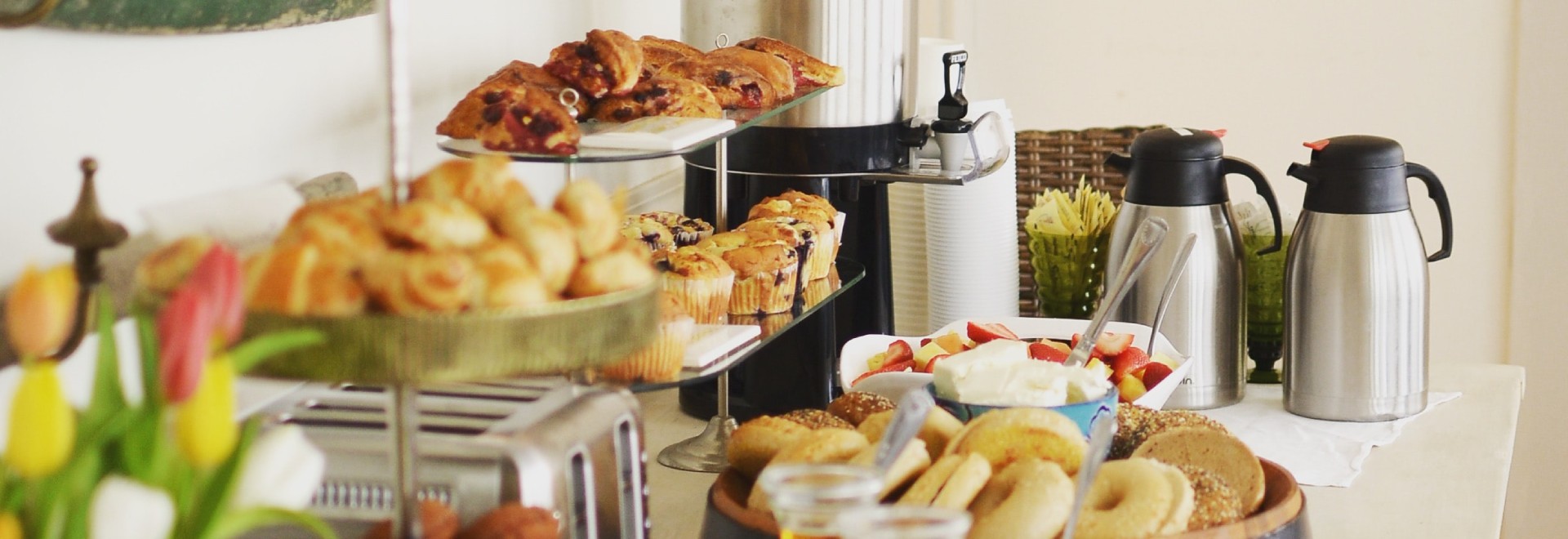From sachets to specialty: The incredible evolution of hotel coffee
Michelle Anindya speaks with Gleneagles Hotel’s head of coffee, George Chatzianastasiou, about how specialty coffee has filtered into hotels.
In 2019, a member of the popular question-and-answer platform, Quora, posed a simple question. “Why is hotel coffee so bad?” they asked. The post generated a stream of heated replies blaming everything from the freshness of the beans to the use of tap instead of filtered water.
However, while the user who asked the question (and those who chipped in with answers) were clearly sharing particularly bad experiences, the discussion highlighted a wider global trend: hotel coffee has traditionally fallen short of rising consumer expectations.
Indeed, since the turn of the century, the emergence of specialty coffee around the world has reflected a growing appreciation for high-quality coffee and its values, such as environmental sustainability and ethical sourcing. Defined by its diverse range of distinctive flavour profiles, specialty coffee has spearheaded the third-wave movement and begun appearing everywhere from bars to car dealerships.
However, the hotel industry has been slow to catch this trend. Research by UCC Coffee revealed that 75% of guests find hotel coffee poor or average, while nearly a third feel that subpar coffee offerings would discourage them from returning to the hotel.
Now, things are changing. What was once limited to sachets and batch brew in the lobby is increasingly becoming in-house baristas and high-end superautomatic coffee machines. Some hotels have even started serving their own signature blends, using specialty coffee beans and those with the know-how to brew it.

Barriers to high-quality hotel coffee
Despite their gradual movement away from low-quality brews and adoption of products in the specialty sector, hotel coffee still has a certain stigma attached.
George Chatzianastasiou is head of coffee at the five-star Gleneagles Hotel in Scotland. He has been at the forefront of ensuring the hotel delivers the best coffee experience to its customers as possible, whether during all-day conferences or the morning breakfast rush. Even the espresso martinis they serve are made using single origin beans from Origin, a UK specialty coffee roastery.
But while Gleneagles has clearly placed a dedicated focus on its coffees, this is far from the norm. George explains that, for hotels, the main barriers to high-quality brews have been budgets, large supply needs, and a lack of coffee professionals on site.
“During breakfast, in particular, a hotel may serve hundreds of guests at a time,” he says. “Serving a lot of coffee, especially hot, in a short period of time is challenging, even for experienced baristas. It’s not easy.”
In the past, many hotels have been reluctant to employ in-house baristas. Whereas it is common for hotels to employ dedicated teams in the kitchen and at the bar, training staff on how to use specific equipment and ensure the coffee is prepared properly has been notably absent in the hotel industry.
Yet George says that training is one of the most important aspects of serving good hotel coffee – and, for those using manual machines, can be a defining factor.
“If you have the most expensive equipment but you don’t have the right staff, it’s a bad investment,” he notes. He goes on to list three main factors that any hotel must get right if it is to serve high-quality coffee:
- Correctly dosing espresso
- Grinding fresh
- Keeping the machinery clean
“As long as you follow these steps, you can make good hotel coffee,” he explains.

The role of superautomatic coffee machines
Many people treat coffee as an essential component of their morning routines. Research by the Le Meridien found that more than half of its guests consider hotel coffee their ideal wake-up call.
Business executives and professionals who rely heavily on hotels for work and meetings also expect a high level of coffee service. Not only does it provide the caffeine kick to start the day, but it can be a social affair that helps to ignite conversation and build business relationships.
However, expecting even the best-trained barista to cater to this level of demand in such a short time frame is ambitious. “If you have 500 people attending a conference, you can’t have a barista making coffee for you,” George says. “It’s a challenge. No matter what, the drink should be made to perfection and it should be warm and look nice when it arrives.”
Previously, the most obvious solution to this was offering batch brew coffee. However, since the emergence of superautomatic coffee machines, hotels can now offer espresso-based drinks at speed, without expecting a barista to work themself into the ground.
This also helps maintain consistency between drinks. The skill of a barista with a traditional espresso machine can have a considerable influence on the quality of the final cup. Superautomatic coffee machines, on the other hand, have helped reduce variations from one cup to the next, while still offering a range of drinks.
“Any hotel can introduce specialty coffee, as long as they are prepared to invest in good equipment, specialty coffee beans, and stick to a consistent recipe,” George concludes. “It’s not rocket science. You just need to follow a few simple rules and you can serve great coffee.”







